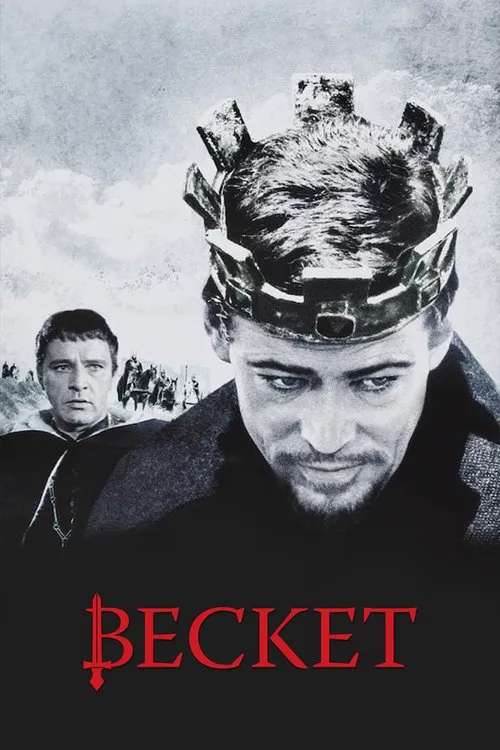Becket

Plot
The 1964 film Becket is a historical drama that explores the tumultuous relationship between King Henry II of England and his trusted advisor, Thomas Becket, a charismatic and intelligent young cleric who rises through the ranks to become the Archbishop of Canterbury. The film begins with King Henry II's (played by Peter O'Toole), lavish lifestyle, depicted as an excess of indulgence and licentiousness. The king is surrounded by a retinue of sycophants and courtiers who feed his ego and indulge his every whim. Thomas Becket (played by Richard Burton), on the other hand, is a devout and ascetic individual who serves as the king's chief advisor and confidant. Despite their vastly different personalities, the two men have developed a close and intimate bond, with Becket often serving as a moral compass for the king. However, Becket's appointment as Archbishop of Canterbury, engineered by the king, sets the stage for a catastrophic confrontation between the two men. The king, who has become increasingly tyrannical and disillusioned with the Church's influence over his kingdom, believes that by making Becket the Archbishop, he can maintain control over the Church and use it as a means to consolidate his power. Becket, on the other hand, is reluctant to accept the appointment, sensing that it would compromise his integrity and undermine his relationships with the monks and clergy. As Becket assumes his new role, he begins to see the king's machinations for what they are: an attempt to undermine the authority of the Church and gain absolute power over England. Despite his initial reservations, Becket becomes a strong advocate for the Church's rights and freedoms, and his newfound position allows him to challenge the king's authority directly. The two men engage in a series of heated exchanges, with Becket using his wit and intelligence to confront the king's excesses and abuses of power. The film takes a dramatic turn when King Henry II makes a series of inflammatory remarks about Becket, including calling him "that impediment to justice." This remark sparks a wave of outrage among the clergy and the people of England, who see Becket as a champion of their rights and a defender of their faith. The king, oblivious to the danger he has created, continues to taunt and belittle Becket, pushing his former friend to the brink of madness. Meanwhile, Becket's relationships with his colleagues and acquaintances begin to fray, particularly with his former friend, the king. The two men's friendship, which had been the central axis of the film, begins to disintegrate, replaced by a toxic mix of suspicion, jealousy, and animosity. Becket's advisors and the clergy, who had grown to fear the king's tyrannical nature, begin to support Becket, and the two men form a powerful alliance that will eventually lead to a cataclysmic showdown. The film's climax takes the form of a confrontation between King Henry II and four of his knights, who have been deputed to murder Becket in the very Cathedral where he has taken refuge. The king, unable to bring himself to order the murder personally, has instead sent his knights to do the deed, thereby avoiding a potentially disastrous loss of face. In one of cinema's most memorable and poignant scenes, Becket, realizing that his time is almost up, stands in the Cathedral, defiantly proclaiming, "I'm not going anywhere. The law of the Lord is not the law of England." As the knights approach, Becket remains unmoving, his eyes fixed on the sky, anticipating his fate. The scene ends with a shot of the king, pale and shaken, as the sound of Becket's dying blows is heard in the background. The aftermath of Becket's murder sees the Church rising up in outrage, with many clergy and nobles branding the king's actions as a sacrilegious act that has brought dishonor to the kingdom. Henry II, realizing too late the depth of Becket's sacrifice, becomes increasingly isolated and lonely, haunted by the ghosts of his own guilt and regret. The film ends on a note of sorrow and melancholy, with the king's kingdom plunged into chaos and turmoil, as if the very foundations of society have been shaken to their core. Through the lens of this historical drama, director Peter Glenville explores the complexities of power and loyalty, highlighting the dangers of unchecked ambition and the importance of moral principle in the face of tyranny. The performances of Peter O'Toole and Richard Burton add depth and nuance to the story, capturing the intensity and passion that fueled the real-life conflict between King Henry II and Thomas Becket.
Reviews
Recommendations




